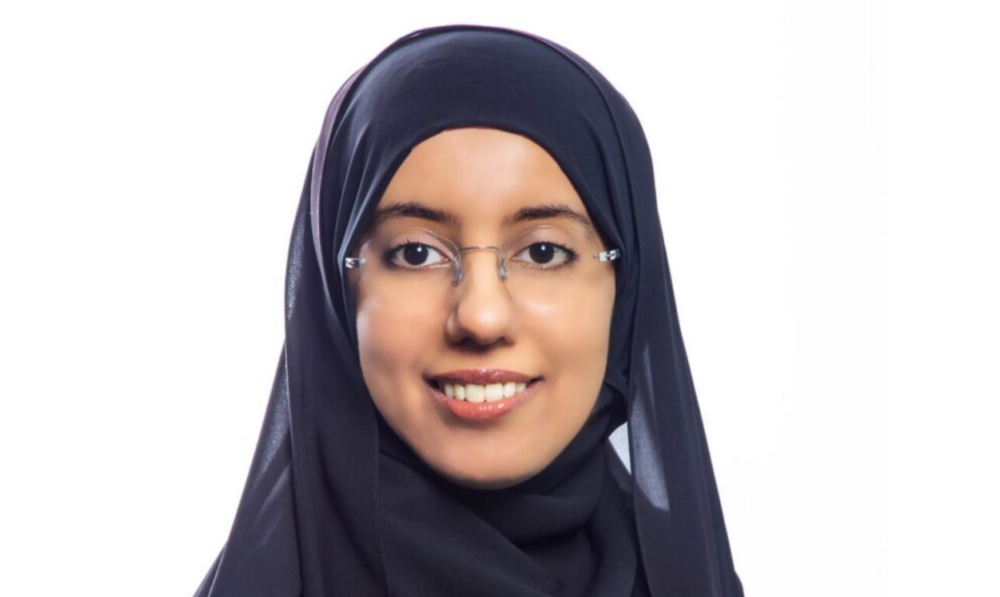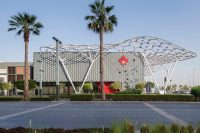The latest inspection by KHDA says that 71% of schools in Dubai are inclusive
In recent years, Dubai has made significant progress in inclusive education. According to the latest inspection conducted by the Knowledge and Human Development Authority (KHDA), 71% of schools in the region are providing inclusive education that is rated as ‘good’ or better, while in 2014, schools providing inclusion education was just 39%.
Numerous initiatives by the KHDA over the past decade, including the implementation of a specifically designed Inclusive Education Quality Framework and Inclusive Education Guide for Schools have helped in setting the required standards of educational practice and offering clear guidance and developmental support for private schools in Dubai.
Leading the inclusive education efforts of KHDA with a dynamic team of strategists and inspectors is the charismatic Fatma Belrehif. She is the CEO of Dubai Schools Inspection Bureau at KHDA.
A vocal advocate for the inclusion of students of determination in schools, Belrehif chairs the Inclusive Education Task Force, which was set up by the Dubai Executive Education Council.
As CEO of the Dubai Schools Inspection Bureau (DSIB), Belrehif leads the team that sets the standards for and assures the quality of private schools in Dubai. Belrehif was part of the original team that started inspecting Dubai private schools in 2008. Since then, she has seen the proportion of students attending schools rated as ‘good’ or better increase from 30 to 66 per cent.
She attributes this considerable improvement in the quality of provision to the hard work put in by schools and their communities, guided by aspirational, shared standards and rigorous annual inspections. She believes that the inspection process has helped to raise expectations of students, parents and teachers alike.
She holds a bachelor’s degree in education and a master’s degree in public administration. In 2008, Belrehif was recognised as a Distinguished Employee by the Dubai Government Excellence Programme. She graduated from the Mohammed Bin Rashid Programme for Leadership Development in 2006.
Education Middle East spoke to Fatma Belrehif about the regulator’s role in shaping inclusive education in Dubai, the contribution of various stakeholders in ensuring the success of an inclusive education policy and more.
What percentage of schools in Dubai meet the Dubai inclusive education standards?
Our latest inspection results show that 71% of schools are providing inclusive education that is rated as ‘good’ or ‘better’, compared to only 39% in 2014.
The aim was to make Dubai schools fully inclusive by 2020. To what extent have we achieved the goal?
The journey towards inclusion in our schools is ongoing, it does not have an end point. As the diversity of student populations increases and different barriers and opportunities arise, schools must work hard to develop an agile system to ensure that all learners have equitable access to quality education.
Schools have made significant strides in developing quality services for students of determination and a greater range of needs are being met. More students of determination are now enrolled in Dubai’s private schools.
Tell us about KHDA’s role in shaping inclusive education in Dubai/UAE.
KHDA continues to prioritise the development of inclusive education across Dubai’s education landscape. Over the past seven years, we have implemented a specifically designed Inclusive Education Quality Framework that has enabled clear evaluation, setting of recommendations and developmental support for each private school. When we improve the quality of inclusion within our schools, we improve the quality of education for all.
Additionally, as the authority charged with leading the development of Dubai’s inclusive education strategy, we have worked closely with the Inclusive Education Taskforce and international experts to develop a range of high-impact improvement programmes and publications including, the Inclusive Education Policy Framework (2017), the Inclusive Education Guide for Schools (2019) and the Directive and Guidelines for inclusive Education (2020).
Who are the key stakeholders in ensuring the success of an inclusive education policy?
As schools commit to the development of inclusive education systems, the momentum for change must be facilitated, modelled and enabled through leadership and governance. Principals and school leaders must ensure that the development of inclusive education is established as a strategic priority and that support, challenge, accountability and resourcing are assured.
All teachers must view themselves as teachers of students of determination. Differentiation, creativity and active participation must become the hallmarks of all lessons.
Parents are the most powerful advocates for their children. They must be empowered to uphold the rights of their children as learners to ensure equitable access to quality education. Parents need to commit to establishing and maintaining a partnership with schools as this is a key driver of educational success.
Government authorities have a key role to play in mobilising opportunities to enable, enhance and enforce the necessary requirements to ensure Dubai develops a fully inclusive system of education.
How is KHDA extending its support to teachers and parents of specially abled children in this regard?
KHDA has recently released the publication ‘Advocating for inclusive education, a guide for parents’. This guide provides a clear understanding of parental rights, responsibilities and opportunities when navigating the system of inclusive education and empowers them to become effective advocates for their children. Additionally, KHDA has appointed inclusion champions and dedicated teams to provide information, support and guidance for students of determination and their families.
While policies call for inclusive education, achieving this goal remains a bit challenging in a regular school setting. What are the steps taken by KHDA to make it easier for schools to implement it in a regular school setting?
Developing inclusive systems of education in regular school settings is not easy, but it is of benefit to the entire school community and is recognised internationally as a hallmark of high quality education. Dubai’s Inclusive Education Policy Framework clearly provides the standards of practice expected within Dubai private schools.
KHDA has employed a highly supportive approach to the promotion of inclusive education within Dubai private schools. A guide for schools provided information about specific processes and personnel required to support the development of inclusive practice, and an additional Directives and guidelines document ensured that some of the most important aspects of inclusive provision were linked to legislation and given a statutory status. During the pandemic we also provided a guide for schools which explored how to create alternative learning options for students whose level of difficulty made virtual education too challenging.
Over the years, a highly developmental approach was taken when applying the inspection processes related to inclusive education, with specialist inspectors providing focused feedback and professional dialogue to support schools in reviewing and improving inclusive education provision. Additional events such as ‘What Works X’ and school principal briefing sessions and question and answer forums have provided further and ongoing support over time.
For schools that are keen to tread this path, what is the investment needed?
The creation of inclusive schools requires a fundamental shift in the way we think about education. One of the most powerful and impactful investments is the commitment of education providers, governors and leaders. Many schools now operate fully-inclusive cultures and services which are a strong feature of the provision they provide.
How can we make inclusive education more affordable?
KHDA has implemented a number of initiatives to monitor the cost of inclusive education for students of determination. One example is the introduction of a ‘Standard Schools Service’. This is a list of inclusive education services which every school in Dubai must provide to students of determination as part of the standard tuition fee – no additional charges can be made for these services. Additionally, KHDA introduced the ‘Individualised Service Agreement’. KHDA requires every school to work in partnership with parents to complete and submit this form to provide details about any additional costs incurred for intensive support provision. Schools must justify the reason for these additional supports, and the quality and impact of the service is monitored and reviewed.
With regard to inclusive education, where does Dubai stand vs other global cities?
The implementation of a regular, dedicated inclusive education inspection framework is unique internationally. This has been a key enabler of positive change to a point where inclusive education is now widely accepted as a hallmark of education excellence. The size and diversity of Dubai’s private school sector is also unique globally.
What is KHDA’s long-term vision for inclusive education in Dubai?
In many ways students of determination are our teachers; they remind us that happiness is possible in the face of adversity; they teach us that with perseverance we can achieve almost anything; they provide us with daily insight into lives filled with courage, bravery, persistence and positivity. KHDA is committed to generating a diverse and high-quality education ecosystem that has choices to enable every student to flourish.








